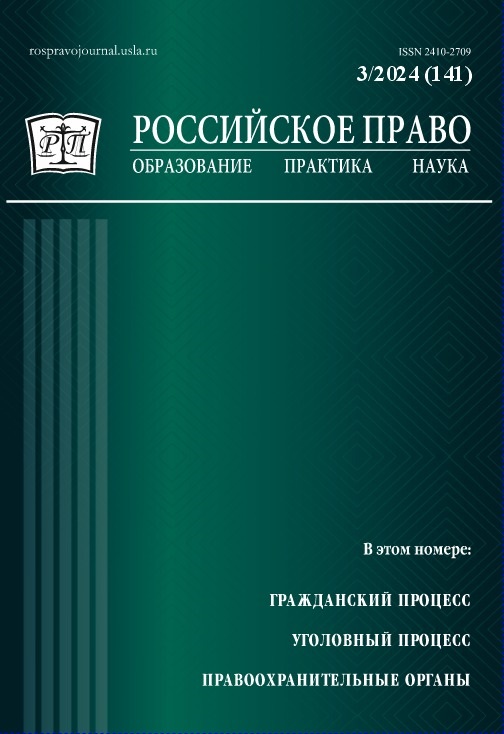Developing Law Students’ Metacognitive Skills
Keywords:
metacognitive skills, legal education, lawyer’s professional personality, foreign language, personal developmentAbstract
The article examines the issue of developing law school students’ metacognitive skills as a tool for development of their professional personality and as a prerequisite to their academic and professional success. The authors discuss the importance of metacognitive component of legal education and describe the main characteristics of professional legal activity and legal skills necessary for a competent specialist. The concepts of “metacognition”, “metacognitive skills”, “learner autonomy” are defined. Students achieve learning autonomy by developing metacognitive strategies such as planning, observing/monitoring, regulating and evaluating their cognitive activity. For this purpose, it is proposed to use an algorithm for managing your cognitive process consisting of twelve main stages that clearly correlate with the basic metacognitive strategies. Due to its flexibility this algorithm can be used to solve cognitive problems in both academic and professional activities with the aim of personal development.
The practical relevance of the research lies in providing specific recommendations for the development of law students’ metacognitive skills in the context of first-year academic disciplines which are taught by the authors of this article: “Foreign language” and “Foreign language in the field of jurisprudence” such as keeping a “metacognitive” diary, using metacognitive reading strategies and various interactive methods. It is suggested to use a foreign language textbook for lawyers that is didactically organized with the focus on competence-based, person-centered and active-learning strategies.
Downloads
Published
Issue
Section
License
Copyright (c) 2024 RUSSIAN LAW: EDUCATION, PRACTICE, RESEARCHES

This work is licensed under a Creative Commons Attribution-NonCommercial 4.0 International License.







 This work is licensed under a
This work is licensed under a 